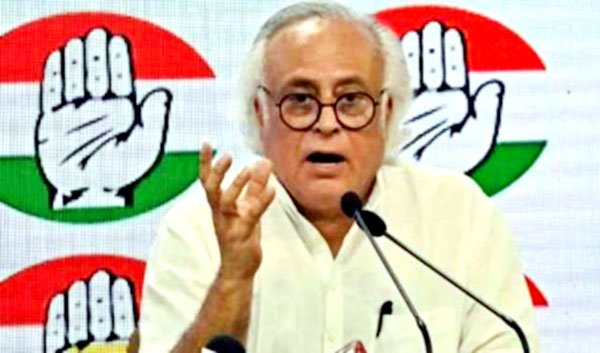New Delhi, Nov 7 (UNI) In a robust defense against recent political allegations, senior Congress leader Jairam Ramesh on Friday emphasized the deep historical and cultural importance of the national song Vande Mataram. He called for respect and an unconditional apology for what he described as a misrepresentation of its legacy.
Ramesh referenced key historical accounts, particularly from Sabyasachi Bhattacharya’s acclaimed 2003 biography of Vande Mataram- the iconic anthem written by Bankimchandra Chattopadhyay that was integral to India’s independence movement. Bhattacharya’s research highlights the October 29, 1937 resolution by the Congress Working Committee (CWC), which officially recognized Vande Mataram as a national symbol.
“Just three days prior to the CWC meeting, Rabindranath Tagore wrote to Jawaharlal Nehru on this matter,” Ramesh revealed. “It was Tagore, with his special connection to Vande Mataram, who recommended adopting the first two stanzas of the song, a suggestion that significantly influenced the resolution,” he added in a post on X.
Ramesh’s remarks come as a direct response to Prime Minister Modi’s recent claim that Tagore’s advice to modify the song reflected a ‘divisive ideology’ that contributed to the partition. While Modi did not explicitly accuse Tagore himself, he implied that the decision to alter the song, influenced by Tagore’s counsel, was politically divisive.
“This is a shameful distortion coming from a leader prone to spreading falsehoods,” Ramesh asserted. “The nation deserves an unconditional apology.”
Further underscoring the song’s significance, Ramesh noted that on January 24, 1950, during a Constituent Assembly session chaired by Dr Rajendra Prasad, Vande Mataram was formally honored alongside the National Anthem, ‘Jana Gana Mana’. Dr Prasad declared both songs equally revered for their historic role in India’s freedom struggle.
Ramesh also highlighted that Tagore first performed Vande Mataram at the 1896 Indian National Congress session in Kolkata, marking the anthem’s rise as a symbol of national unity. Historian Rudrangshu Mukherjee recently offered a detailed account affirming Jana Gana Mana’s history, countering political myths.
In addition to the anthem’s legacy, Ramesh drew attention to Bankimchandra Chattopadhyay’s progressive social views.
Between 1872 and 1876, Chattopadhyay authored a series of essays titled Samya, sharply criticizing caste discrimination. These writings, translated as ‘Equality’ by Bibek Debroy in 2002, reflect the visionary spirit behind Vande Mataram.
As debates over India’s national symbols continue, Jairam Ramesh’s call for historical accuracy and reverence for shared heritage strikes a chord amid the politically charged environment. The enduring legacy of Vande Mataram, enriched by luminaries like Chattopadhyay and Tagore, remains a powerful testament to India’s pluralistic ethos and freedom struggle.











